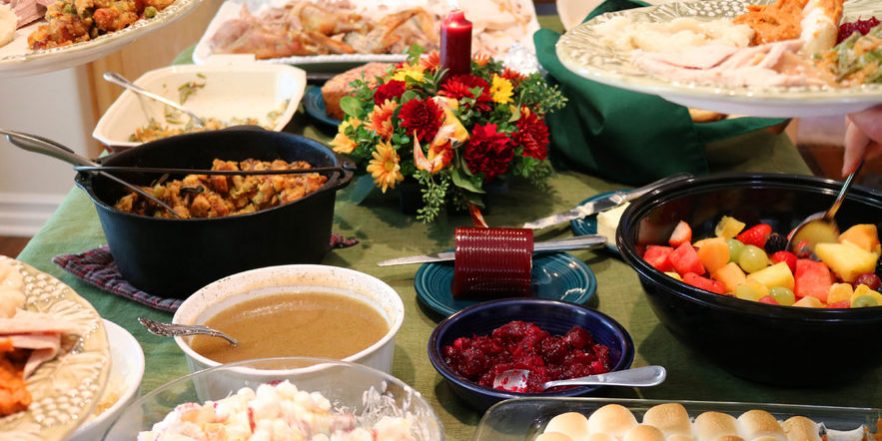By Miranda Chan, B.Sc., Registered Dietitian
The holidays are all about celebrating with friends, family and food. Some of the most popular holiday dishes and events can be food safety risks. Keep the occasion memorable (in a good way) by following these food safety tips.
Potlucks and Holiday Buffets:
- Use warming trays, chafing dishes, or crockpots to keep hot foods hot.
- Place serving trays over crushed ice to keep cold food cold.
- Foods left out in the DANGER ZONE (between temperatures of 4°C to 60°C) are at high risk for causing foodborne illness because bacteria can grow quickly. Do not leave food out at room temperature for more than two hours.
- Never add new food to serving dishes that are already in use. Instead, restock buffet tables with clean serving trays and fresh food that has been kept out of the danger zone.
- Provide clean and separate serving utensils for every dish served – including finger foods. This can prevent the spread of germs between guests.
Leftovers:
- Don’t leave leftovers sitting out for more than two hours.
- Once food stops steaming, refrigerate in shallow containers and leave lids off or wrap loosely so food can cool quickly.
- Store turkey meat separately from stuffing and gravy.
- Use refrigerated leftovers within two to three days or freeze for later.
Popular Holiday Foods:
Turkey:
- If fresh, cook turkey within two to three days of purchasing.
- If frozen, thaw in refrigerator or immerse in cold water.
- Cook in oven until it reaches a minimum internal temperature of 85°C (185°F). Use a digital food thermometer to test the thickest part of the breast or thigh meat. Don’t let the thermometer touch any bones.
- Always wash the thermometer in between uses.
Stuffing:
- Stuffing can be cooked separately in its own dish (to minimum internal temperature of 74°C or 165°F) or if you stuff the turkey, stuff it loosely and remove all stuffing right after cooking.
Eggnog:
- If you are making homemade eggnog, use pasteurized egg products.
- If raw eggs are used, heat the egg-milk mixture to at least 71°C (160°F) then refrigerate in shallow containers so it can cool quickly.
DON’T FORGET to wash your hands
This is one of the best ways to prevent the spread of foodborne illness.
- At the very least, wash your hands before eating or preparing food and after handling raw meat.
- Using simple soap and water is the most effective way to rid your hands of germs.
- If soap and water are not available, use an alcohol-based hand sanitizer.
Please note that health information on this website is for educational purposes and is not intended to replace advice from your physician or other healthcare professionals.
References and Resources:
www.hc-sc.gc.ca
www.inspection.gc.ca








